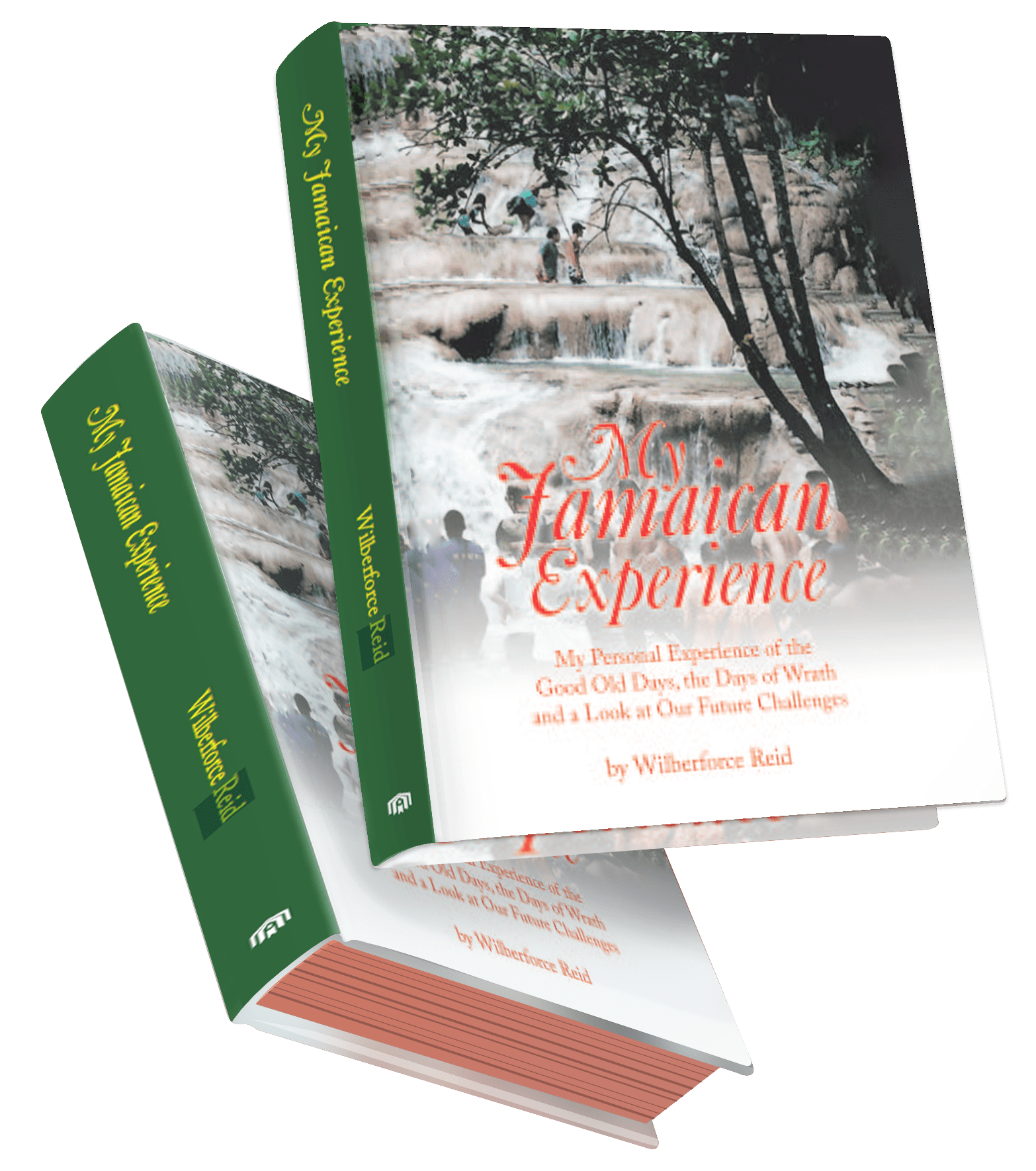My Jamaican Experience
In the book, Wilberforce documented, for the younger generation and the nostalgic “not so young generation,” what it was like to grow up in rural Jamaica in the 60s and 70s.
“The fairest land ever eyes beheld . . . the mountains touch the sky.” This is what Christopher Columbus wrote in his log when he landed on the north coast of Jamaica on May 5, 1494. This statement has been affirmed over the years, resulting in up to five million tourists visiting Jamaica each year. Jamaica has gone on to become a record producer of sugar, banana, and bauxite (aluminum ore). It was the first country in the Western Hemisphere to have a postal system, a piped domestic water system, and a golf course. In the nineteen sixties and early seventies, the country had one of the highest growth rates among the developing countries. It won more Olympic track-and-field medals, as a ratio of its population, than any other country in the world, and only the United States had a larger aggregate.

In spite of this early sterling performance, Jamaica has been through a turbulent political uprising and is still trying to navigate through a crippling economic malaise. In the nineteen seventies and early eighties, Jamaica was ground zero for the Cold War between the United States and the Soviet Union.
The author will take you through the good old days of the natural simplicity of growing up in rural Jamaica. He will recount the past, and present great achievements that have been accredited to Jamaica. He will accompany you through the nights of telling ghost stories, encounters with the dreaded “Rolling Calves” and the drama of “The Louise and Rannie Show.” He will also take you with him through the days of wrath when Jamaica was the staging ground for the proxy war between the Soviet/Cuban axis versus the United States Central Intelligence Agency (CIA).
To purchase a copy of this book just do an internet search for:
My Jamaican Experience by Wilberforce Reid, , then buy from the bookstore of your choice.
There are other books with similar title, you can search by using the ISBN number
Soft cover: ISBN number 978-1-4969-4508-2
e-Book: ISBN number 979-1-4969-4509-9
EXCERPTS
Page 28: What was social life like in a rural community without public electricity, public water system, or television? Not as bad as one may imagine. In fact, there was more “social” in life than there is today. Both adults and children interacted more with each other than we do now. More importantly, all the activities came from the creative minds of local people. I remember when concerts were performed by a group of local people. Their “theater” or concert hall (or whatever you want to call it), was made of thatch and wattle, quite neatly done. The seats were locally made benches…..
Page 35: Back then, people did not go to the store to buy a pair of pants, a shirt, or a dress; they bought the fabric and took it to their tailor or seamstress to make their clothes. I do remember travelling salesmen driving around selling ‘pants length’ (the amount of fabric to make one pair of pants). Clothes made by local tailors and seamstresses were well made and stylishly fitted — from work clothes up to wedding ‘three piece suits’ and dresses. The same was true of shoes. Most shoes were made locally. One would go to the shoemaker; he would measure your feet and build you a pair of shoes……
Page 36: There were no homeless people in our community. Indeed, it would be an indictment on the entire family if a family member did not have a place to live. If for whatever reason he or she could not take care of him or herself, a relative or stranger would take that person in and care for him or her. Money or material things were not a priority in our community. The best of what you reaped from your garden was shared among friends as opposed to being sold. People who sold the best of what they had were not respected. If the best was not shared among friends, it was sent to the annual church harvest……
Page 37: Those Hair-Raising Ghost Stories. Mass Tom was the chief teller of hair-raising duppy (ghost) stories. He often told us about the night he encountered a ‘rolling calf’. Now, a rolling calf was supposed to be the most fearsome creature from the spirit world that a person may encounter. It was supposed to be the apparition of the worst type of demon from hell, appearing in the form of a cow. It would drag around a chain and would have a sulfur-like odor. So if you were out at night and heard something like an animal pulling a chain, and smelled something like sulfur, you would run away as fast as you could. Just looking into the eyes of a rolling calf could kill you…..
Page 64: Days of Wrath. The period leading up to the general election in 1980 was one of the most violent and volatile times in the post independent history of Jamaica. The country was violently polarized between the ‘Democratic Socialist’ ideology introduced into the Peoples National Party, and the American style capitalist ideology of the Jamaica Labour Party. This happened during the peak of the so-called ‘cold war’ between the ‘Western Powers’ and the Soviet Union. This scenario spawned a proxy war between the Soviets through their Cuban surrogate. This encounter was a deadly cocktail for Jamaica. Nearly a thousand people were killed in the ensuing violence. It was a war between the US made M-16 rifle and the Soviet made AK-47 rifles…..